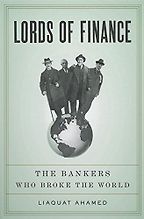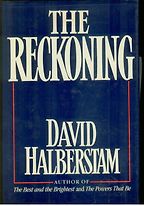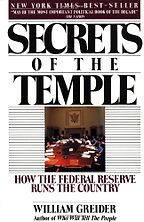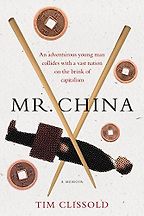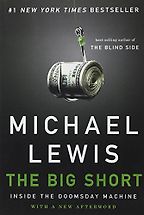You’ve just written a book about Ireland’s economy. Could you say a few words about what you think is going on there now?
Well, these are really tragic days for Ireland. After overcoming its long history of poverty to become a high-growth economy known as the ‘Celtic Tiger’, Ireland now has stumbled into a financial debacle that will take it years to escape. The villains were reckless banks that binged on cheap capital to fuel a housing and credit bubble that was larger even that what we had here in the United States, facilitated by blind or cowed regulators and politicians who were happy to pretend that the good times could last forever. Some tried to warn them they were wrong, but while the boom lasted the Cassandras were ignored. Now, the Irish people – both the guilty and innocent – face years of unavoidable sacrifice and hardship. It’s going to be a long time before anyone again looks to Ireland as an economic model, as small countries from Colombia to Croatia did during the Celtic Tiger years. But if the Irish carry out some long overdue reforms, they can look forward to a decent future once the crisis passes. I’ve had the chance to report from other countries in the midst of just terrible economic suffering – Indonesia and Russia in 1998, Turkey in 2001 – and in the dark times it’s always impossible to imagine there will be brighter days ahead. But there were for those people and there will be for the Irish.
Tell me about Lords of Finance.
This one sort of speaks to something I’ve long been interested in. We get this general education in schools that follows the basic themes of presidents and wars and that kind of thing and then there’s this alternative history of finance and economics, and Lords of Finance impressed me because it gives you that alternative history, particularly through the inter-war years from the end of World War I into the Great Depression. A buddy of mine described it as The Guns of August for global finance and I think that sums it up nicely. It’s a great history.
What is that history, in a nutshell.
Well, what this book does is tell the story of the attempts to repair the global financial system that had been ruptured by World War I. It’s not widely known, but in the years leading up to World War I we had a surge of globalisation that brought together international trade and finance in a way that’s very reminiscent of what’s been going on in the last decade or two. This is the second era of globalisation and the first ended badly, with World War I, so he does mini-biographies of the central bankers, the people in the Bank of England, the Germans and the French and their efforts to repair the pre-war system and their fascination with the gold standard… it’s just a wonderful account of these men and their doomed attempts to save a system that ultimately collapses into depression and war.
Was globalisation blamed for the First World War in any way?
I don’t know that I’d blame it, but the lesson to be taken from that is, Tom Friedman had the argument a few years back that no two countries that have a McDonald’s ever went to war with each other – that was his promotion of globalisation and it was true right up until the moment when it stopped being true when the US bombed Serbia. The lesson I take away is that trade does not inoculate you from the dangers of war. The mere fact of having a globalised system and a lot at stake in terms of trade of commerce, and our relationship with China and other places doesn’t necessarily mean anything except that the cost of a conflict would be quite high. It doesn’t mean there won’t be conflict.
The Reckoning.
I read this when it came out in the mid-80s and it’s always stuck with me. I’m a big fan of Halberstam’s writing anyway. You love him or hate him, what with his constant digression and everything else. The Reckoning is an account of the problems in the American auto industry and is the story of how America goes from dominating the auto industry and really being synonymous with it to losing a step to the Japanese. There are a lot of things I like about the book, but the nub of it is that he bases it in the wider context of American decline and the loss of American supremacy in the post-war period and the rise of the Japanese challenge. That was what everybody was worried about in the 1980s, that we were losing step to Japan and Japan was going to become the world economic power. That all seems sort of laughable now, but this book came out four years before the Japanese went into a long period of stagnation.
What is its relevance now?
It reminds an American audience how long we’ve been concerned about this idea of American decline. If you go back and read some of the things he’s writing about in the 1980s, it’s very topical today. In between the late 80s and today we’ve had a series of bubbles – the tech bubble, the housing bubble, the credit bubble – and it all maps this very real and very fundamental idea of long-term American economic decline. We have really not done enough to grapple with this. It’s also a reminder of the fact that the issue really isn’t Japan or China or the other guy, the important thing is our own issues, no matter who the competitor is. We were worried about the Japanese in the 1980s and that seems silly now; we’re worried about China today but you can’t extrapolate Chinese growth indefinitely into the future as if it’s going to continue at ten per cent a year forever, but whether or not China does well or poorly we still have real issues that we’ve got to tackle. The thing that sticks in my mind from The Reckoning is this portrait he does of the Japanese executive who was sent by Nissan to lead the charge into the American market and at the time we saw Japan as an economic colossus, never made a mistake and they’d somehow discovered a secret recipe for prosperity, but the truth of the matter was that they sent this guy to America because they didn’t sell any cars in the US so they didn’t really care about it and he was a problem. He was the guy who wouldn’t do it the way everybody else did and was a problem in the office and so to get rid of him they sent him to America, like an exile, and in fact he turned that into his great personal opportunity and a great opportunity for the company.
Secrets of the Temple.
This is a history of the Federal Reserve. I tried to read it when it first came out and I’ll confess I didn’t get very far. I went back to it a few years ago and found it fascinating. He does a wonderful job. He sees the Fed as the real locus of power in the US democracy. Not the president, not the congress, but the central bank, and he does a great job of making that argument. This book was the first popular look behind the curtain of this very secretive institution. People think of the CIA as the secretive organisation, but the Fed is probably just as secretive or it certainly was at the time, in the 80s, and he shines a light on it. He also tells the story of how Paul Volcker, the chairman of the Federal Reserve at the time, really waged war on inflation, the great problem then in the American economy and probably in the developed world. He shows just how great the costs were of vanquishing inflation.
How did he and why would you want to?
Inflation is basically rising prices and that’s OK. If a six pack of beer costs two per cent more a year, or your rent or gasoline, that’s not such a big deal, but if everything’s going up at ten per cent a year and your wages aren’t, inflation doesn’t tend to plateau as the Germans found back in the 20s – it starts at six, then it’s nine, then 12 and then it becomes unstoppable because people keep trying to get ahead of it, so you’ve got the sort of hyper-inflation that countries like Brazil and Germany have had and it gets embedded in the economy and it’s very difficult to get rid of. It worms its way into every economic and financial institution and it becomes quite difficult to kill.
How might you do it?
When prices are rising it’s a sign of economic activity running too high so you need to cool the economy off by raising interest rates. Now, of course, the cost of raising interest rates is that you’re trying to put the brakes on the economy so businesses fail, people get put out of work and, in the US context, you get the very bad recession we had in 1981-2 which was a double-dip recession and until this latest recession it was the worst economic period for the US since the Great Depression. It was a very tough time.
Putting a damper on the economy seems like a disastrous response.
And it was. But the only way to get prices to stop rising is to reduce demand. Prices are going up when a lot of people are buying those products. There’s more demand than there is supply. So you cool off demand by raising interest rates which makes it harder for businesses to borrow money to expand, for people to borrow money to buy a car.
So, you’re putting a brake on borrowing. Got it. Now Mr China.
This is a great book. There has been so much written about China over the years and this is a wonderful read. A lightly fictionalised tale of this guy Tim Clissold and his adventures as a businessman and investor back in the early 90s when China was just starting to open up and western businessmen were salivating at the prospect of selling into China and this is a very warts-and-all perspective on the problems that westerners run into. The British textile industry used to say that if each Chinaman would just lengthen his shirt by an inch the mills in Lancashire would be running indefinitely. There’s a billion of them, and people thought: ‘If I could just get every one in ten of them to buy my product, I’ll be rich!’ What people don’t anticipate is that trying to get that one in ten to buy your product is enormously difficult for a lot of the reasons that Clissold sets out – the local politicians have their hands in the till, trying to get paperwork signed, trying to make sure that if you’re buying this factory the person who sells it to you actually owns it in the first place. Trying to get anything done in the early 90s was enormously taxing.
Was this partly because of cultural clashes?
Yes. There’s some of that, because you had people who had not studied China sufficiently in depth to understand how things worked. It was just another market and riches would flow. Despite all the change in China the lessons of this book are still relevant today. If I were going to China as a businessman this is the book I’d read on the flight over.
Five Books aims to keep its book recommendations and interviews up to date. If you are the interviewee and would like to update your choice of books (or even just what you say about them) please email us at [email protected]
Five Books interviews are expensive to produce. If you've enjoyed this interview, please support us by donating a small amount.
